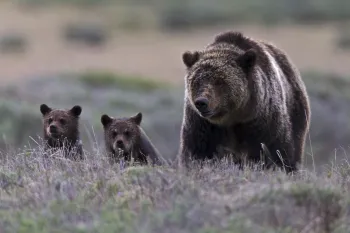
Don Getty

Karim Iliya
Wildlife protection
Wild animals face poaching, trophy hunting, and exploitation. We campaign worldwide to protect species, end cruelty, and promote coexistence.
Wildlife face human-driven threats—illegal trafficking, trophy hunting, commercial whaling, being forced into entertainment and being killed for their fur.
are gassed or electrocuted for fur each year
are poached for parts each year
are killed as trophies each year
Super tusker elephants are iconic, majestic animals that have at least one tusk weighing 100 pounds. They serve an immeasurable role in their ecosystem, as well as the herd’s genetic, social, behavioral and hierarchical composition and longevity. As of 2024, it was estimated that fewer than 10 super tusker elephants remained in the Greater Amboseli ecosystem, and fewer than 50 across the African continent.
Discover how you can make a difference for wildlife.

Doug Steakley/Getty Images
Political attacks threaten the U.S. Endangered Species Act, which has saved hundreds of species from extinction.
WASHINGTON—Humane World for Animals and Humane World Action Fund, formerly called Humane Society of the United States and Humane Society Legislative Fund, launched a nationwide conservation education
WASHINGTON—Humane World for Animals and Humane World Action Fund, formerly called the Humane Society of the United States and Humane Society Legislative Fund, released the following statements on the
Start saving lives by making a one-time gift today. You can also help animals all year long with a monthly contribution.
Meredith Lee/Humane World for Animals